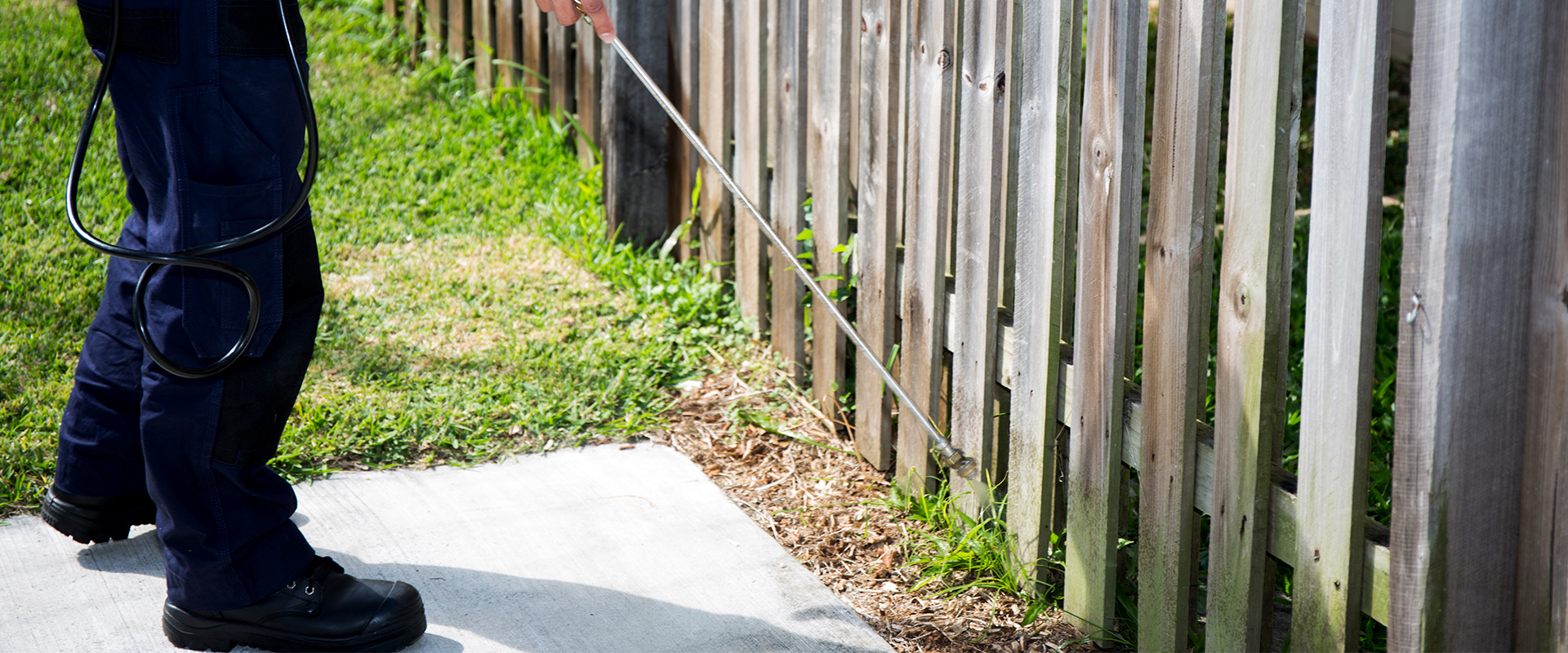
What are termites?
Termites are insects that feed on cellulose found in wood and plant or organic matter. The most widespread species of termite in the Boston area and across the United States is the subterranean termite. As their name suggests, subterranean termites build underground nests. They also have high moisture needs and prefer to feed on wet or decaying wood. These termites are social and live together in large groups. Termites are active year-round and work day and night to gather enough food to sustain their colony.
You must proactively protect your home from being damaged by wood-eating termites. These insects are highly organized, and once they discover that your property offers them their basic needs of food, shelter, and water, they won’t be in any hurry to leave. Partner with a Boston termite control expert to guard your home against these pests. General Environmental Services is here to help you keep these wood-eating pests out of your home.
Are termites dangerous?
Termites aren’t a physical threat to people like other pests, but they threaten our homes, wooden structures on our properties, and bank accounts. Termites pose significant dangers to the structural integrity of houses and the contents of bank accounts. The damage termites cause to our homes can become extensive and is typically not covered by homeowner insurance policies. A termite infestation is a costly problem; across the country, each year, termites are responsible for causing more than five billion dollars in damage.

OUR PEST LIBRARY
Why do I have a termite problem?
The two biggest attractants for subterranean termites are moisture and wood. Worker termites leave their nest each day to search for reliable food sources. They move through the soil or mud tubes they build above the ground. Damp soil around our homes' perimeter caused by overgrown vegetation, lack of gutters, leaky pipes, and dripping air conditioners or hoses creates the excess moisture termites love. The small size of termites allows them to move into our homes through the tiniest cracks in foundations. Worker termites also get inside through pieces of wood in our homes, making direct contact with the ground, preferring to move through soft or rotting wood.
Once inside, they move towards moisture areas and feed on structural wood, wooden floor joists, wood fixtures, drywall, wooden beams, and other cellulose-rich items.
Where will I find termites?
Outside in our Boston yards, termites create nests in moisture-rich areas. They use fallen trees, dead trees, tree stumps, and other organic debris as food sources.
When termites enter our homes, they remain largely out of sight. Termites travel through our houses behind walls, under floors, and above ceilings, moving into pieces of wood and feeding on its interior. Because these “silent invaders” are rarely seen, it can take months or years for a homeowner to realize a termite infestation has taken over their home. In many cases, homeowners discover termite damage before seeing actual termites.
Because termites are silent invaders, being proactive and guarding your home from these damaging pests is vital. Scheduling regular termite inspections is critical to maintaining a termite-free home.

Customer Reviews
Read reviews from people in your neighborhood!
At General Environmental Services, your satisfaction is our priority! See for yourself what our customers have to say about working with us.
-
“I always appreciate the great response from GES. All team members are professional, from the customer service on the phone to the actual specialists in the field. Great job. Thank you!”- Jane D.
-
“I have been their client for 40+ years for a reason!”- Sheb S.
-
“Our company, Hicks Management Group, has used General Environmental for over 20 years. They provide quarterly preventative treatments at our Boston property. Their service is excellent and reliable. They are very responsive!”- Julie S.
-
“GES has been very accommodating since we signed on with them a year ago. James Conley, our technician, is outstanding!”- Susan C.
-
“I’ve used General Environmental for many years and they have never fallen short of providing excellent service and results.”- Edward H.
-
“We've used GES for more than a decade, and they've always gone above and beyond! They're an A+, locally owned company that takes care of its customers.”- John T.
-
I've been a customer for years, and I never have had any regrets. All the personnel are polite and professional, and the job quality is outstanding. Hats off to Craig with his wonderful personality and excellent service. I plan to remain a customer for a very long time.- Emily D.
-
“Stanley is amazing! Best pest tech I’ve ever had at my work - couldn’t ask for a better technician!”- James W.



